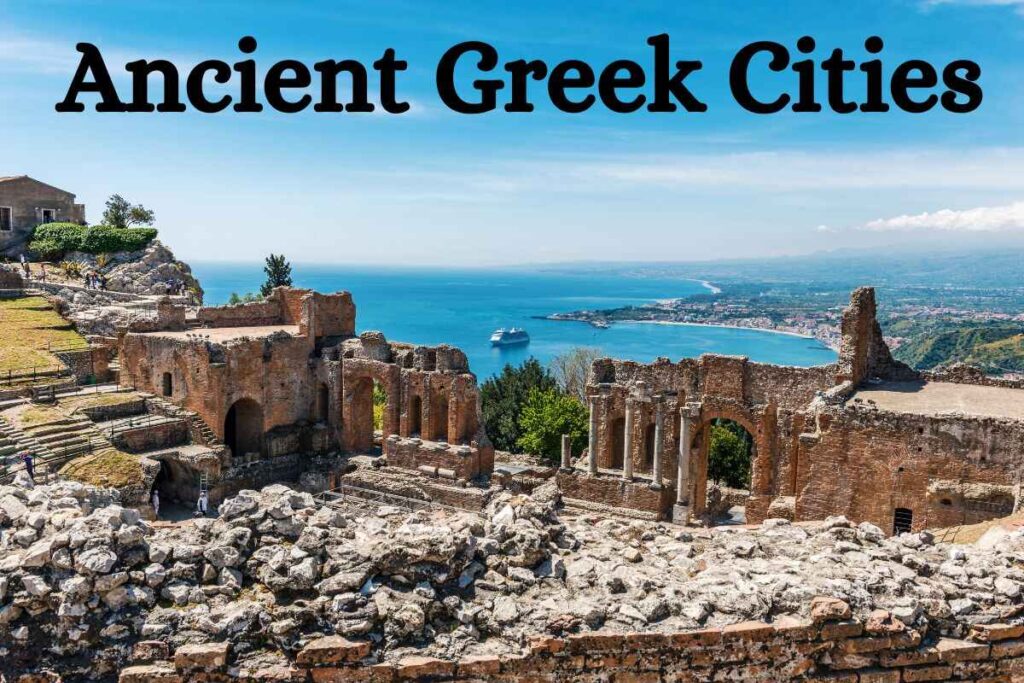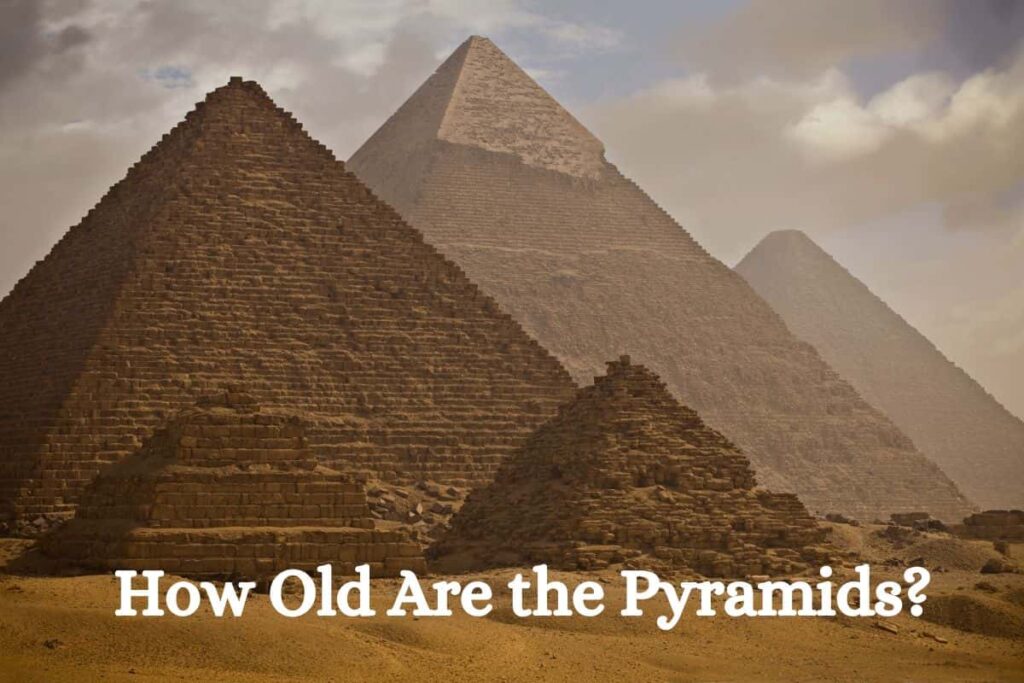Introduction:
Welcome to a captivating journey through the remnants of history, where we delve into the enchanting world of Ancient Greek Cities. This article aims to provide you with a comprehensive understanding of the ancient marvels that laid the foundation for one of the most influential civilizations in history.
The Rise of Ancient Greek Civilization
The genesis of the Ancient Greek civilization marks a pivotal point in human history. Emerging around 800 BCE, this civilization flourished in a landscape defined by city-states, each with its unique character and governance.
The flourishing of Ancient Greece was influenced by factors such as geography, trade, and the evolution of political thought. The Greek city-states, or “polis,” were independent entities with distinctive customs, fostering a rich diversity that contributed to the overall vibrancy of the civilization.
if You want to know more about ancient civilizations click here
Ancient Greek City-States: Pillars of Democracy
The concept of city-states, or “polis,” was integral to Ancient Greek society. These independent city-states were not only geographically distinct but also possessed their own political structures, fostering the development of democracy.
Democracy in ancient Greece was a revolutionary concept, as citizens actively participated in decision-making processes. This inclusive governance system laid the groundwork for the development of Western political thought.
Ancient Greek City-States: Pillars of Democracy
The concept of city-states, or “polis,” was integral to Ancient Greek society. These independent city-states were not only geographically distinct but also possessed their own political structures, fostering the development of democracy.
Democracy in ancient Greece was a revolutionary concept, as citizens actively participated in decision-making processes. This inclusive governance system laid the groundwork for the development of Western political thought.
In a typical Greek city-state, citizens gathered in assemblies to discuss and vote on important matters. This direct form of democracy was a fundamental aspect of the political landscape, shaping the ethos of each city-state. Key decisions, including matters of war, peace, and legislation, were determined through the collective will of the citizens.
The democratic ideals established in Ancient Greek city-states, particularly in Athens, have left an enduring legacy. The concept of citizens actively participating in governance has influenced political systems throughout history, contributing to the evolution of representative democracies.
Notable Ancient Greek Cities and Their Legacy
In this section, we will explore the enduring legacy of key Ancient Greek cities:
4.1 Athens: The Cradle of Democracy

Athens, with its Acropolis overlooking the city, stands as the epitome of democratic ideals. The Parthenon, a testament to classical architecture, continues to inspire awe.
The city of Athens was not only a political hub but also a center of intellectual and artistic achievements. Figures like Socrates, Plato, and Aristotle flourished in this vibrant city, contributing significantly to philosophy and the foundations of Western thought.
4.2 Sparta: Warrior Society

Known for its formidable military prowess, Sparta’s disciplined way of life shaped its society. Explore the unique aspects that made Sparta a city-state like no other.
Sparta’s military-focused culture aimed at producing disciplined and resilient citizens. The legendary Spartan warriors, known for their prowess on the battlefield, played a crucial role in shaping the destiny of ancient Greece.
4.3 Corinth: The Strategic Hub

As a crucial trade hub, Corinth played a pivotal role in connecting various regions. Uncover the strategic importance that made Corinth a focal point in Ancient Greece.
Corinth’s strategic location on the isthmus facilitated trade between the Aegean and Ionian seas. The city’s prosperity was closely tied to its advantageous position, making it a center for commerce and cultural exchange.
4.4 Thebes: A Center of Learning and Arts

Thebes, while often overshadowed by other cities, had a rich cultural heritage. Discover the contributions of Thebes to art, literature, and philosophy.
Despite facing periods of political instability, Thebes made significant cultural contributions. The city’s support for the arts and intellectual pursuits left an indelible mark on the cultural tapestry of ancient Greece.
Cities Lost in Time: Ancient Greek Cities That No Longer Exist
The passage of time has claimed some ancient Greek cities, leaving behind only fragments of their existence. Explore the mysteries surrounding these lost cities and the stories they tell.
The rise and fall of civilizations often involve the disappearance of once-thriving cities. Helike, an ancient Greek city, was engulfed by the sea following an earthquake in 373 BCE. Pella, the birthplace of Alexander the Great, is another city lost to the sands of time.
The study of these lost cities provides valuable insights into the challenges and vulnerabilities faced by ancient Greek communities, reminding us of the impermanence of human achievements.
The Grandeur of Famous Ancient Greek Cities:
6.1 Olympia: The Birthplace of the Olympic Games

Olympia, the birthplace of the Olympic Games, held a special significance in ancient times. Delve into the sporting and cultural spectacles that unfolded in this sacred city.
The Olympic Games, originating in Olympia in 776 BCE, became a symbol of unity and athletic excellence. The city’s grand temples and stadiums hosted athletes from across the Greek world, fostering a sense of camaraderie and cultural exchange.
6.2 Delphi: The Oracle’s Sanctuary

Delphi, home to the Oracle of Apollo, was considered the center of the world in Greek mythology. Uncover the mystical aura that surrounded Delphi and its influence on decision-making.
The Oracle of Delphi, a revered priestess, served as a conduit between the mortal and divine realms. Kings, generals, and individuals sought guidance from the Oracle, making Delphi a crucial center for spiritual and political consultations.
6.3 Ephesus: A Marvel of Ancient Engineering

Ephesus, a city renowned for its advanced engineering, boasted the impressive Temple of Artemis. Explore the architectural marvels that made Ephesus a testament to ancient ingenuity.
The Temple of Artemis, one of the Seven Wonders of the Ancient World, showcased the architectural prowess of the Ephesian people. The city’s well-planned streets, public buildings, and advanced plumbing systems exemplify the sophistication of ancient Greek urban planning.
Exploring the Population Dynamics of Ancient Greek Cities
Understanding the population dynamics of ancient Greek cities is key to unraveling their social fabric. This section explores the factors that influenced population growth and decline in these city-states.
Factors such as agricultural practices, trade, and external conflicts shaped population dynamics in ancient Greece. While some cities experienced periods of demographic growth, others faced challenges that led to a decline in population. Additionally, the interplay of these factors influenced the ebb and flow of populations across different regions.
FAQ Section
Q1: What were the major contributions of Ancient Greek cities to civilization?
Answer: Ancient Greek cities made significant contributions to art, philosophy, governance, and architecture, shaping the foundations of Western civilization.
Q2: Which Ancient Greek city-state was known for its military prowess?
Answer : Sparta was renowned for its formidable military culture, emphasizing discipline and strength.
Q3: Are there any ancient Greek cities that no longer exist?
Answer : Yes, several ancient Greek cities, such as Helike and Pella, have been lost to time due to natural disasters and other factors.
Q4: How did democracy shape the political landscape of Ancient Greek cities?
Answer : Democracy played a transformative role in Ancient Greek cities, allowing citizens to actively participate in decision-making processes. This inclusive form of governance laid the groundwork for modern democratic principles.
Q5: What was the significance of the Oracle of Delphi in Ancient Greek society?
Answer : The Oracle of Delphi held great significance as a spiritual guide and political advisor. Leaders sought the Oracle’s counsel on important matters, considering her insights as divinely inspired.
Conclusion
As we conclude our extensive journey through the wonders of Ancient Greek Cities, we invite you to reflect on the indelible impact these city-states left on the tapestry of human history. The echoes of their achievements continue to resonate, reminding us of the enduring legacy of this remarkable civilization.
The exploration of Ancient Greek cities provides not only a glimpse into the past but also valuable lessons for the present and future. By understanding the challenges and triumphs of these city-states, we gain insights into the resilience of human societies and the transformative power of culture, governance, and innovation. May the legacy of Ancient Greek cities inspire generations to come, fostering a deep appreciation for the rich tapestry of our shared human history.



